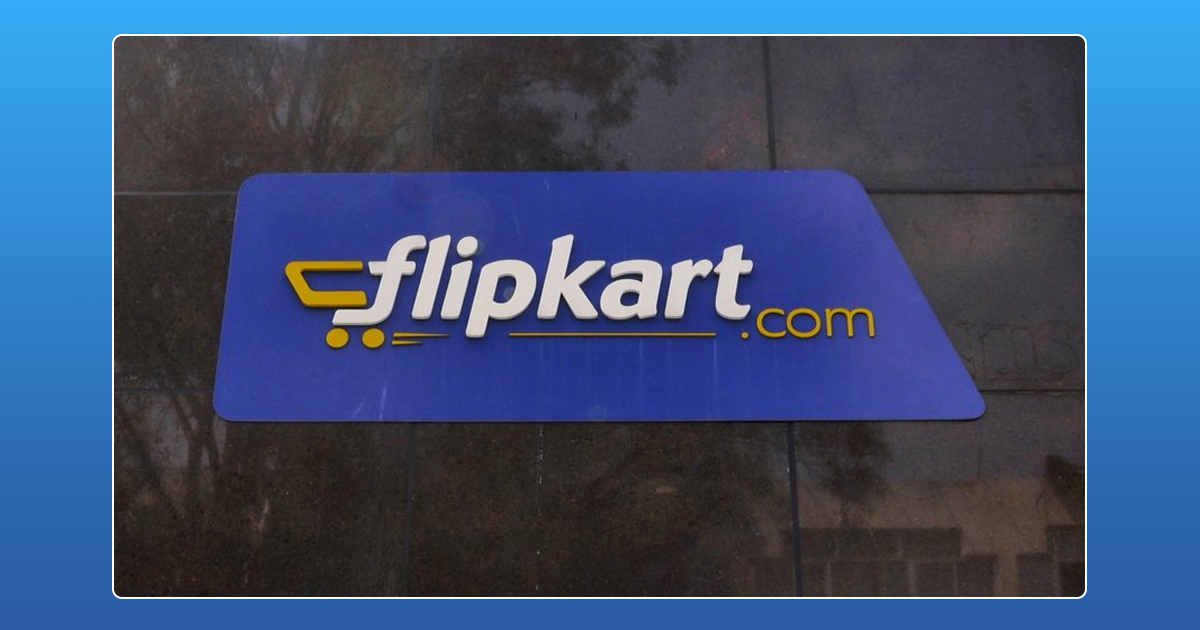Latest News
Flipkart COO Quits Amid Snapdeal Acquisition

Nitin Seth, the Chief Operating Officer of Flipkart, quit the e-commerce company on Wednesday. The head of the logistics unit Ekart cited personal reasons for leaving the organization.
Seth, who had joined the company in March 2016 as the Chief People Officer was promoted to Chief Administrative Officer and eventually the COO. He was also in charge of other corporate functions such as Strategy and Human Resources, which was then taken over by CEO Kalyan Krishnamurthy. This move gives Krishnamurthy overall charge of all key functions of the organizations.
Prior to joining Flipkart, Seth worked as the MD for Fidelity International as the MD and was the head of its offshore operations across Tunisia and India. He has also lead McKinsey’s global knowledge center for 8 years before joining Fidelity.
Nitin Seth’s exit is the latest in a long list of several senior level officers leaving Flipkart following a management overhaul. The list includes Saikiran Krishnamurthy, head of Ekart; chief marketing officer Samardeep Subandh; and senior vice president of product management Surojit Chatterjee.
Seth’s exit comes at a time at an unfavorable time as the Bengaluru-based company is in talks of acquiring Snapdeal, a fellow e-commerce startup. Flipkart has recently raised $1.4 billion from industry giants this past April which gave it control over eBay India.
Latest News
Peak XV New Funds: $1.3B Commitment for India Startup Surge 2026

Peak XV Partners has launched three new funds totaling $1.3 billion, targeting India’s booming startup ecosystem. The lineup features the $600M Surge fund (8th edition) for early-stage ventures, a $300M Growth Fund for Series B+ scaling, and a $400M Acceleration Fund for rapid portfolio expansion. This commitment arrives as India’s VC inflows rebound, with AI and fintech leading 2026 trends.
These funds build on Peak XV’s legacy of backing unicorns like Zomato and Pine Labs, offering founders capital plus strategic guidance amid post-winter recovery. Early-stage deals surged 20% last year per Tracxn, positioning Peak XV to fuel the next wave of innovation in SaaS, climate tech, and consumer plays.
For startups eyeing Peak XV new funds or Surge fund 2026 applications, this signals prime opportunities. Investors and marketers should watch for deployment updates India remains a global VC hotspot.
Latest News
D2C Brand Neeman’s Raises $4 Million for Tier 2/3 Store Expansion & Eco-Friendly Shoes

Hyderabad, January 13, 2026 Neeman’s, India’s leading D2C footwear brand famed for sustainable shoes and patented PIXLL® technology, has raised $4 million from existing investors. This funding boosts its cumulative capital past $10 million since 2015, with a post-money valuation nearing $50 million. CEO Vijay Chahoria emphasized offline retail as the “next frontier,” planning 50+ new stores in Tier 2/3 cities like Jaipur and Lucknow to blend eco-friendly innovation with hands-on customer experiences.
In India’s booming D2C ecosystem where footwear sales hit ₹1.2 lakh crore in 2025 Neeman’s targets hybrid retail amid high online CAC and 25-30% returns. Backed by vegan, machine-washable shoes priced ₹2,000-4,000, the brand leverages PIXLL® (5x more breathable than leather) for carbon-neutral comfort. Recent 5x revenue growth to ₹100 crore ARR, 1M+ pairs sold via Myntra and stores, and awards at India D2C Summit 2025 position it ahead of rivals like Paaduks.
Neeman’s offline expansion India eyes the $15B sustainable footwear market by 2028, fueled by PLI schemes, Gen Z’s 70% eco-preference (Nielsen), and Southeast Asia exports. Challenges like real estate costs are offset by data-driven inventory and omnichannel QR tech. Watch for Q1 2026 launches in Hyderabad and Bengaluru redefining D2C success through authentic, “Wear the Change” branding.
Latest News
Centre Mulls Revoking X’s Safe Harbour Over Grok Misuse

The Centre is weighing the option of revoking X’s safe harbour status in India after its AI chatbot Grok was allegedly misused to generate and circulate obscene and sexually explicit content, including material seemingly involving minors. The IT Ministry has already issued a notice to X, directing the platform to remove unlawful content, fix Grok’s safeguards, act against violators, and submit a detailed compliance report within a tight deadline. If the government finds X’s response inadequate, it could argue that the platform has failed to meet due‑diligence standards under Indian law, opening the door to harsher action.
Under Section 79 of the IT Act, safe harbour protects intermediaries like X from being held directly liable for user‑generated content, provided they follow due‑diligence rules and promptly act on legal takedown orders. Revoking this protection would mean X and its officers could be exposed to criminal and civil liability for obscene, unlawful, or harmful content that remains on the platform, including AI‑generated images from Grok. This prospect significantly raises X’s compliance risk in India and could force tighter moderation, stricter AI controls, and more aggressive removal of flagged posts.
The Grok episode also spotlights the regulatory grey zone around generative AI, where tools can create harmful content at scale even without traditional user uploads. Policymakers are increasingly questioning whether AI outputs should still enjoy the same intermediary protections as conventional user posts, especially when they involve women and children. How the government ultimately proceeds against X over Grok misuse could set a precedent for AI accountability, platform responsibility, and safe harbour interpretation in India’s fast‑evolving digital ecosystem.













lb3zz
June 8, 2025 at 2:45 am
buy cheap clomiphene where can i get clomiphene no prescription can i get cheap clomid no prescription how can i get generic clomiphene without dr prescription can i order clomid without insurance where to get clomiphene without dr prescription can i purchase cheap clomid for sale
iwin
November 5, 2025 at 2:14 pm
iwin – nền tảng game bài đổi thưởng uy tín, nơi bạn có thể thử vận may và tận hưởng nhiều tựa game hấp
Kuwin
November 6, 2025 at 7:18 pm
kuwin sở hữu kho game đa dạng từ slot đến trò chơi bài đổi thưởng, mang đến cho bạn những giây phút giải trí tuyệt vời.
站群程序
November 7, 2025 at 6:48 am
采用高效谷歌站群策略,快速提升网站在搜索引擎中的可见性与权重。谷歌站群
谷歌蜘蛛池
November 10, 2025 at 5:55 pm
利用强大的谷歌蜘蛛池技术,大幅提升网站收录效率与页面抓取频率。谷歌蜘蛛池
MM88
November 12, 2025 at 5:52 am
Khám phá thế giới giải trí trực tuyến đỉnh cao tại MM88, nơi mang đến những trải nghiệm cá cược thể thao và casino sống động.
GO88
November 23, 2025 at 11:53 pm
Tham gia cộng đồng game thủ tại Go88 để trải nghiệm các trò chơi bài, poker phổ biến nhất hiện nay.
MM88
November 24, 2025 at 2:35 am
Với giao diện mượt mà và ưu đãi hấp dẫn, MM88 là lựa chọn lý tưởng cho các tín đồ giải trí trực tuyến.
1win
December 12, 2025 at 11:42 am
https://t.me/s/be_1win/441
AtomCasino
December 13, 2025 at 12:45 pm
https://t.me/s/atom_official_casino
Vegadream Casino Freispiele
December 20, 2025 at 3:30 pm
FAQ-Bereich umfasst 200+ deutsche Antworten zu häufigen Fragen über Boni, Zahlungen, Spielregeln und technische Probleme.
Unser deutschsprachiger Kundensupport operiert aus Berlin und München mit
muttersprachlichen Agenten. Push-Benachrichtigungen informieren über Bonusaktivierungen, Turniereinladungen und Auszahlungsbestätigungen in deutscher Sprache.
Mobile Zahlungen integrieren deutsche Banking-Apps wie Sparkassen-App, Commerzbank-App und Deutsche Bank-App für nahtlose Ein- und
Auszahlungen. Unsere mobile Plattform optimiert sich automatisch für deutsche
Internetgeschwindigkeiten und Mobilfunknetze.
Deutsche Spieler profitieren von GDPR-Compliance, schnellen SEPA-Überweisungen und lokalem Kundensupport für optimale Spielerfahrungen. Das VIP-Programm, regelmäßige deutsche Turniere und kulturell angepasste Promotions garantieren langfristige Unterhaltung
für alle Spielertypen. Spezialisierte VIP-Manager für deutsche High-Roller bieten persönliche Betreuung mit direkten Telefonnummern und WhatsApp-Kontakten. Support-Agenten absolvieren monatliche
Schulungen über deutsche Glücksspielgesetze, Verbraucherschutz und kulturelle Sensibilität.
Typisch sind prozentuale Einzahlungsboni mit Obergrenzen im mittleren dreistelligen bis niedrigen vierstelligen Bereich.
Vorteile incluieren 5-15% Cashback, persönliche deutsche Account Manager, Express-Auszahlungen und exklusive Ereigniseinladungen. Ja, unser fünfstufiges VIP-Programm bietet
Bronze bis Diamond-Status basierend auf monatlichem Spielvolumen.
References:
https://online-spielhallen.de/umfassende-bitkingz-casino-erfahrungen-ein-spielerbericht-nach-10-jahren-online-glucksspiel/
starz
December 25, 2025 at 5:25 am
https://t.me/s/Officials_888STARZ
Best Australian online gaming 2026
December 27, 2025 at 4:40 am
Based on the overall experience the editor
will then write a review. Safety is a very important
factor for us so each product’s installation file is also checked against
malware using VirusTotal and Google Safe Browsing.
Once an interesting app or game is found our editor
will test it to get a better understanding of its features, possibilities
and limitations. FileHorse is not just a software download portal, but also a big knowledge base for apps
and games. Powered by the newly developed VOLTA Football
framework, this game now has f… His career spans both publishing and content creation, combining knowledge of storytelling with hands-on analysis of games and digital media.
The title develops the formula known from the previous games,
offering fun for both single player and fans of multiplayer experience.
The next installment of a series of football games from EA Sports studio.
If you want more games like this bookmark our
site for easy access next time.
References:
https://blackcoin.co/stay-casino-no-deposit-bonus-australia-free-spins-bonus-codes-2025/
real money slots Australia
December 27, 2025 at 8:10 pm
OpenAI’s ChatGPT now offers new funtions for business users,
including integrations with various cloud services, meeting recordings,
and MCP connection support for connecting to tools for in-depth research.
Some ChatGPT users have noticed a new feature called “Study Together” appearing in their list
of available tools. CEO Sam Altman said that the company is delaying the release
of its open model, which had already been postponed by a month earlier this
summer. The company says this dynamic approach helps the model outperform GPT-5 on key coding benchmarks,
including bug fixes and large-scale refactoring. OpenAI
launched a new AI shopping feature in ChatGPT ahead of the peak holiday shopping window to help users research potential
purchases.
Open AI introduced a new section called “library”
to make it easier for users to create images on mobile
and web platforms, per the company’s X post. The new models stand out from previous
reasoning models because they can use ChatGPT features
like web browsing, coding, and image processing and generation. Flex processing is available in beta on the o3 and o4-mini
reasoning models for non-production tasks like model evaluations, data enrichment,
and asynchronous workloads.
ChatGPT users should be cautious when seeking emotional support from AI, as the AI industry lacks safeguards for sensitive conversations, OpenAI CEO Sam Altman said on a recent
episode of This Past Weekend w/ Theo Von. OpenAI unveiled Study Mode, a new ChatGPT feature designed to promote critical thinking by prompting students to
engage with material rather than simply receive answers.
This week, ChatGPT is on track to reach 700M weekly active users —
up from 500M at the end of March and 4× since last year.
OpenAI said the chatbot was on track to hit 700 million weekly active users
in the first week of August, up from 500 million at the end
of March. General Services Administration (GSA) added OpenAI,
Google, and Anthropic to its approved AI vendor list,
allowing agencies to access these tools through preset contracts without negotiating pricing.
OpenAI is making a major push into federal government
workflows, offering ChatGPT Enterprise to agencies for
just $1 for the next year.
References:
https://blackcoin.co/vegas-now-your-next-favourite-online-casino-in-australia/
7kCasino
December 29, 2025 at 8:20 am
https://t.me/s/Officials_7K_casino
rentologist.com
December 29, 2025 at 8:43 am
australian online casinos that accept paypal
References:
rentologist.com
marriagesofa.com
December 29, 2025 at 8:55 am
best online casino usa paypal
References:
marriagesofa.com
bluestreammarketing.com.co
December 30, 2025 at 1:52 pm
paypal casinos online that accept
References:
bluestreammarketing.com.co
infuline.co.kr
December 30, 2025 at 2:04 pm
casino mit paypal einzahlung
References:
infuline.co.kr